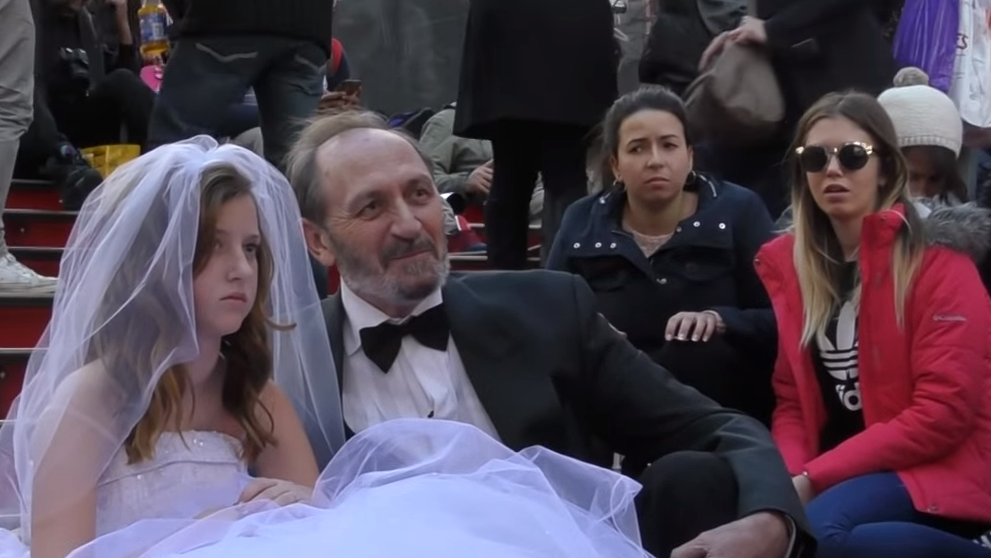New Jersey governor refuses to ban child marriage because 'it would conflict with religious customs'
'An exclusion without exceptions would violate the cultures and traditions of some communities'

A high profile Republican governor has declined to sign into law, a measure that would have made his state the first to ban child marriage without exception.
Chris Christie, the governor of New Jersey and someone who has been a staunch supporter of Donald Trump, said such a ban would conflict with religious customs. He did not specify what religions he was referring to.
Reuters said underage marriage is widespread in the US, where about 170,000 children were wed between 2000 and 2010 in 38 of the 50 states where data was available.
Although age 18 is the minimum for marriage in most of the nation, every state has legal loopholes allowing children to wed. The New Jersey bill would have prohibited any marriage of children under age 18.

Mr Christie conditionally vetoed the measure, sending it back to the state legislature with proposed changes. He said it should have an exception so a judge can approve marriages for 16- and 17-year-olds.
“An exclusion without exceptions would violate the cultures and traditions of some communities in New Jersey based on religious traditions,” Mr Christie said in a statement.
Opponents of the measure said exceptions should remain for marriages of young members of the military - 17-year-olds can enlist with parental consent - and pregnant teenagers.
The bill as it was already approved by both houses of the legislature would have made New Jersey the first state to outlaw child marriage altogether, according to Unchained At Last, a group that opposes arranged and forced marriages.
New Jersey politician, Nancy Munoz, the bill’s main sponsor, told the news agency she was disappointed. ‘It’s not an absolute veto, which is good,” she added.
The measure could become law if legislators send it back to the governor with his recommendations.
Join our commenting forum
Join thought-provoking conversations, follow other Independent readers and see their replies
Comments